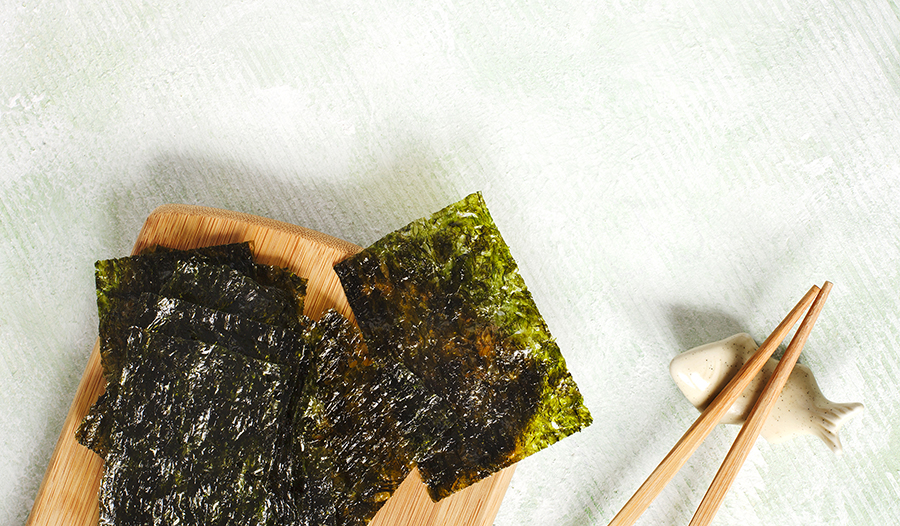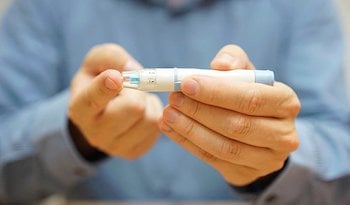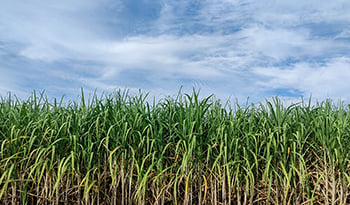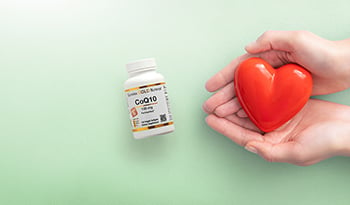9 Ways Seaweed Can Benefit Health
DISCLAIMER:This blog does not intend to provide diagnosis...
- In this article:
- 3 Types of Seaweed
- It Is A Good Source Of Vitamins And Minerals
- It Has Shown To Affect Blood Pressure
- It Could Help With Blood Sugar Control
- It Could Relieve Symptoms Of Arthritis
- It Is Rich In Nutrients That Benefit Gut Health
- It May Help With Cataract Prevention
- It Could Help Strengthen Immune Function
- It May Help Reduce Fibromyalgia Symptoms

Seaweed has traditionally been harvested and consumed by coastal populations around the world. Japan has the highest intake of seaweed of all countries, with individual daily intake of more than 5 grams per day. Seaweed’s popularity has risen exponentially across markets in the past few years, and crispy dried seaweed has become a widely eaten snack. It’s even become a popular ingredient in body care products.
Seaweed generates its energy by the process of photosynthesis, whereby sunlight is used to generate glucose. Seaweed and phytoplankton’s contribution to the atmosphere cannot be understated. It is estimated that 90 percent of all the oxygen in the atmosphere comes from the sea.1 It may have benefits for the human body as well.
3 Types of Seaweed
In general, seaweed, or macroalgae, can be classified into one of three groups:
- Red algae (Rhodophyta) – Normally grows at a depth of 30 meters. If the water is clearer, it can grow deeper. Examples include nori and dulse.
- Green algae (Chlorophyta) – Normally grows in shallow waters. Examples include chlorella and spirulina, a “blue-green algae”
- Brown algae (Phaeophyceae ) – Grows between five to 30 meters. Examples include kelp, wakame, and kombu.
It Is A Good Source Of Vitamins And Minerals
Seaweed is a good source of vitamins B1, B2, B12, and C. Most are also a great source of β-carotene, vitamin A, and vitamin E while containing up to 10 times more minerals when compared to terrestrial plants of the same size. The main minerals found in seaweed include iodine, calcium, magnesium, iron, potassium, and sodium.
A low-calorie food packed with nutrient density, seaweed also contains lectins, peptides, amino acids, polyphenols (antioxidants), and polysaccharides. The sugar alcohol sorbitol is found in red algae while mannitol is found in brown algae.
Studies have reported that proteins in seaweed have antioxidants and properties associated with lowering blood pressure, diabetes prevention, and gut health.2 We will discuss some of the evidence below.
It Has Shown To Affect Blood Pressure
High blood pressure, also known as hypertension, is a common condition that requires the heart to pump harder due to increased pressure and stiffness in the arteries. Affecting hundreds of millions of people worldwide — one in every four adults — this condition often causes no symptoms, leaving many with high blood pressure undiagnosed. For this reason, hypertension has been called “the silent killer.” The condition is known to increase the risk of heart attack, stroke, heart failure, and kidney disease, especially if left untreated.
Medications play an important role in treating blood pressure. However, some prefer to consider other options and alternative approaches.
A 2002 study3 evaluated chlorella’s (green algae) effect on blood pressure. The researchers noted that for some subjects with mild to moderate hypertension, chlorella reduced or at least kept their blood pressure stable, compared to placebos.
A 2009 study4 also evaluated seaweed’s overall effect on metabolic syndrome, specifically blood pressure. The researchers concluded, “Consumption of 4 to 6 grams per day of seaweed, typical for most people in Japan, may be associated with lower metabolic syndrome prevalence.”
Lastly, a 2011 study5 demonstrated that children in Japan who consumed the most seaweed had lower diastolic blood pressure. In addition, a 2020 study6 of nori seaweed in Japan concluded, “Nori intake lowered diastolic blood pressure level in boys. Seaweed intake might have preventive effects on elevated blood pressure in childhood”.
It Could Help With Blood Sugar Control
Worldwide, more than 422 million people have diabetes. The vast majority—90 to 95 percent— have type 2 diabetes, a condition primarily caused by lifestyle factors, including consumption of excess sugar and limited physical activity. Type 1 diabetes is not preventable and occurs when the immune system attacks the pancreas, preventing its ability to secrete insulin. Diet and lifestyle play a big role in determining whether an individual will develop type 2 diabetes. Seaweed may be useful, according to the studies.
A 2014 study7 of wakame (brown algae) showed that it could lower the blood sugar levels of a person who has consumed a meal containing white rice.
A 2015 study showed chlorella may also have benefits in those with diabetes. The researchers found that consuming green algae may be useful in preventing the development of diabetes.
A 2019 animal study8 testing mice with diabetes also showed benefit. The researchers found all seaweed groups improved diabetes and cholesterol compared to the control in test subjects.
A 2019 study9 showed that wakame could lower blood glucose levels while another study10 from the same year evaluated chlorella in rats with diabetes and demonstrated that chlorella and exercise had a synergistic effect in the improvement of blood sugar levels.
It Could Relieve Symptoms Of Arthritis
Arthritis is a condition that has affected humans since the beginning of time. Before the advent of modern pharmaceuticals, those who were afflicted did not simply suffer endlessly, but utilized nature’s herbs and organic foods to help minimize the associated pain.
"Arthritis" comes from the Greek word arthron, which means joint, and the Latin word itis, which means inflammation. In general, there are two main types of arthritis. The first is osteoarthritis (~95%) which occurs from age-related deterioration of the joints, usually knees and hips. The second is rheumatoid arthritis (~5%) which results from an auto-immune condition and can occur at any age.
A 2008 study11 evaluated the effect of red mineral algae (Aquamin) on patients with knee arthritis. The results showed a reduction in pain and stiffness over a 12-week period. A 2009 study12 showed similar findings. Researchers evaluated the seaweed-derived substance and its effect on knee arthritis and concluded that Aquamin had a positive effect on range of motion and walking distances in those with osteoarthritis of the knee. They went on to say that over 12 months of treatment, it could possibly allow partial withdrawal of NSAIDs, a class of anti-inflammatory drugs.
It Is Rich In Nutrients That Benefit Gut Health
Probiotics and prebiotics are helpful in optimizing gut health. Marine algae is a great source of fiber, which can help in maintaining a healthy gut microbiome. A 2019 study13 showed that seaweed has prebiotic properties. This is primarily due to the polysaccharides from the algae, according to a 2016 study14.
It May Help With Cataract Prevention
A cataract is formed over time due to the lens of the eye becoming cloudy. If left untreated, it can lead to blindness. Scientists believe oxidation of the lens is the main reason this occurs. Excessive ultraviolet light exposure, tobacco use, diabetes, high blood pressure, and certain medications, like oral corticosteroids, are risk factors for developing cataracts.
A 2003 study15 of chlorella concluded, “ …Chlorella has antioxidant activity and may be beneficial for the prevention of diabetic complications such as cataracts.” Studies from 201316 and 2014 show that phycocyanin, the active ingredient in spirulina, can help prevent cataracts from forming.
It Could Help Strengthen Immune Function
A properly functioning immune system is important in preventing infectious diseases. Seaweed may play a role. IgA is an antibody that helps protect the mucous membranes, such as the mouth and digestive tract, from infections.
A 2011 study17 concluded that 4-week ingestion of a chlorella-derived supplement improves immune function in humans.” A 2018 study18 also showed the immune-promoting effects of chlorella, which could help the digestive tract may be better prepared to fight microbes.
It May Help Reduce Fibromyalgia Symptoms
Fibromyalgia, sometimes referred to as fibromyalgia syndrome or FMS, is a chronic pain syndrome characterized by muscle aches, general pain, and fatigue. The muscle aches, called myalgias, are usually diffuse and felt throughout the body. The condition affects approximately 10 million people in the United States and more than 100 million worldwide. Of those affected, 90 percent are women. Studies show 68 percent of those with fibromyalgia have tried nutritional supplements to help with their symptoms. 19
A 2000 study20 showed that chlorella may be helpful for those with fibromyalgia symptoms. The scientist went on to say, however, that more studies were needed. A 2001 study suggested similar findings regarding chlorella.
References:
- https://www.americanscientist.org/article/the-science-of-seaweed
- Admassu H, Gasmalla MAA, Yang R, Zhao W. Bioactive Peptides Derived from Seaweed Protein and Their Health Benefits: Antihypertensive, Antioxidant, and Antidiabetic Properties. J Food Sci. 2018;83(1):6‐16. doi:10.1111/1750-3841.14011
- Merchant RE, Andre CA, Sica DA. Nutritional supplementation with Chlorella pyrenoidosa for mild to moderate hypertension. J Med Food. 2002;5(3):141‐152. doi:10.1089/10966200260398170
- Teas J, Baldeón ME, Chiriboga DE, Davis JR, Sarriés AJ, Braverman LE. Could dietary seaweed reverse the metabolic syndrome?. Asia Pac J Clin Nutr. 2009;18(2):145‐154.
- Wada K, Nakamura K, Tamai Y, et al. Seaweed intake and blood pressure levels in healthy pre-school Japanese children. Nutr J. 2011;10:83. Published 2011 Aug 10. doi:10.1186/1475-2891-10-83
- Wada K, Tsuji M, Nakamura K, et al. Effect of dietary nori (dried laver) on blood pressure in young Japanese children: an intervention study [published online ahead of print, 2020 Mar 21]. J Epidemiol. 2020;10.2188/jea.JE20190176. doi:10.2188/jea.JE20190176
- Tanemura Y, Yamanaka-Okumura H, Sakuma M, Nii Y, Taketani Y, Takeda E. Effects of the intake of Undaria pinnatifida (Wakame) and its sporophylls (Mekabu) on postprandial glucose and insulin metabolism. J Med Invest. 2014;61(3-4):291‐297. doi:10.2152/jmi.61.291
- Sørensen LE, Jeppesen PB, Christiansen CB, Hermansen K, Gregersen S. Nordic Seaweed and Diabetes Prevention: Exploratory Studies in KK-Ay Mice. Nutrients. 2019;11(6):1435. Published 2019 Jun 25. doi:10.3390/nu11061435
- Yoshinaga K, Mitamura R. Effects of Undaria pinnatifida (Wakame) on Postprandial Glycemia and Insulin Levels in Humans: a Randomized Crossover Trial. Plant Foods Hum Nutr. 2019;74(4):461‐467. doi:10.1007/s11130-019-00763-5
- Horii N, Hasegawa N, Fujie S, et al. Effect of combination of chlorella intake and aerobic exercise training on glycemic control in type 2 diabetic rats. Nutrition. 2019;63-64:45‐50. doi:10.1016/j.nut.2019.01.008
- JL, Walsh M, Kuskowski MA, Zenk JL. A natural mineral supplement provides relief from knee osteoarthritis symptoms: a randomized controlled pilot trial. Nutr J. 2008;7:9. Published 2008 Feb 17. doi:10.1186/1475-2891-7-9
- Frestedt JL, Kuskowski MA, Zenk JL. A natural seaweed derived mineral supplement (Aquamin F) for knee osteoarthritis: a randomised, placebo controlled pilot study. Nutr J. 2009;8:7. Published 2009 Feb 2. doi:10.1186/1475-2891-8-7
- Chen HY, Huang TC, Lin LC, et al. Fucoidan Inhibits the Proliferation of Leiomyoma Cells and Decreases Extracellular Matrix-Associated Protein Expression. Cell Physiol Biochem. 2018;49(5):1970‐1986. doi:10.1159/000493660
- Cherry P, Yadav S, Strain CR, et al. Prebiotics from Seaweeds: An Ocean of Opportunity?. Mar Drugs. 2019;17(6):327. Published 2019 Jun 1. doi:10.3390/md17060327
- de Jesus Raposo MF, de Morais AM, de Morais RM. Emergent Sources of Prebiotics: Seaweeds and Microalgae. Mar Drugs. 2016;14(2):27. Published 2016 Jan 28. doi:10.3390/md14020027
- Shibata S, Natori Y, Nishihara T, et al. Antioxidant and anti-cataract effects of Chlorella on rats with streptozotocin-induced diabetes. J Nutr Sci Vitaminol (Tokyo). 2003;49(5):334‐339. doi:10.3177/jnsv.49.334
- Biol Trace Elem Res. 2013 Jan;151(1):59-67. doi: 10.1007/s12011-012-9526-2. Epub 2012 Oct 20.
- Otsuki T, Shimizu K, Iemitsu M, Kono I. Salivary secretory immunoglobulin A secretion increases after 4-weeks ingestion of chlorella-derived multicomponent supplement in humans: a randomized cross over study. Nutr J. 2011;10:91. Published 2011 Sep 9. doi:10.1186/1475-2891-10-91
- Chidley C, Davison G. The effect of Chlorella pyrenoidosa supplementation on immune responses to 2 days of intensified training. Eur J Nutr. 2018;57(7):2529‐2536. doi:10.1007/s00394-017-1525-9
- An internet survey of 2,596 people with fibromyalgia. Bennett RM, Jones J, Turk DC, Russell IJ, Matallana L. BMC Musculoskelet Disord. 2007 Mar 9; 8():27.
- The results of this pilot study suggest that dietary Chlorella supplementation may help relieve the symptoms of fibromyalgia in some patients and that a larger, more comprehensive double-blind, placebo-controlled clinical trial in these patients is warranted.
- Merchant RE, Andre CA. A review of recent clinical trials of the nutritional supplement Chlorella pyrenoidosa in the treatment of fibromyalgia, hypertension, and ulcerative colitis. Altern Ther Health Med. 2001;7(3):79‐91.

 By Dr. Eric Madrid, M.D.
By Dr. Eric Madrid, M.D.


